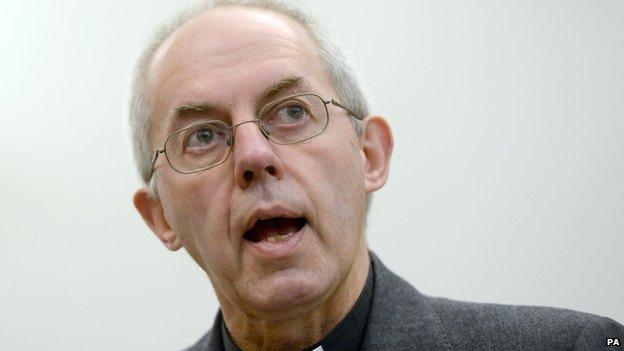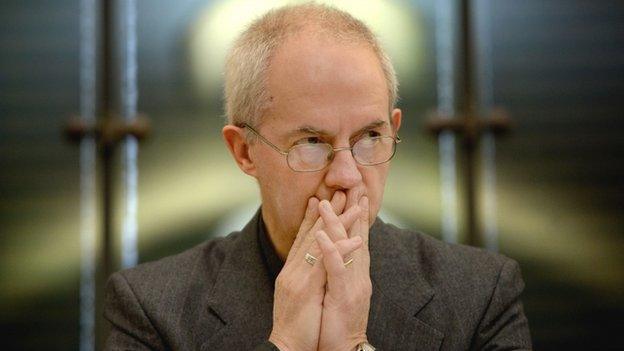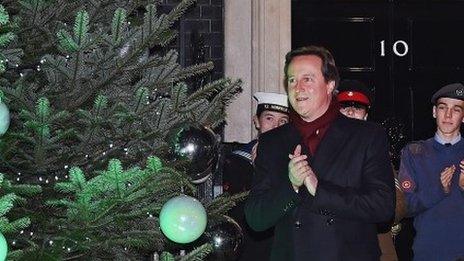Archbishop says Christmas spirit 'not a fairytale'
- Published

The Most Reverend Justin Welby was too unwell to deliver his sermon in person
Fairytale endings are not a reflection of the true spirit of Christmas, the Archbishop of Canterbury has said in his Christmas Day sermon.
He did not give the sermon in person because of a "severe cold".
The Most Rev Justin Welby alluded to the World War One battlefield truce in 1914.
He said it illustrated "something of the heart of Christmas" - but pointed out it was a "one-day wonder" and that the war continued afterwards.
The story of the truce - when soldiers on both sides stopped fighting and played football in no-man's land on the Western front - has been highlighted in several Christmas messages this year. It has also appeared in advertisements.
The archbishop said: "At Christmas 1914, soldiers took the risk, crossed a battle line and kindled an evening of friendship and football.
"The truce illustrates something of the heart of Christmas, whereby God sends his Son, that vulnerable sign of peace, to a weary war-torn world."
'Not fictional'
But he added that the "problem" with the way it is told now is it "seems to end with a 'happy ever after'."
He said: "Of course we like Christmas stories with happy endings: singing carols, swapping photos, shaking hands, sharing chocolate, but the following day the war continued with the same severity.
"That is not the world in which we live, truces are rare."
The archbishop urged worshippers not to reduce the story of Christmas to something "utterly remote, about lives entirely different, fictional, naive, tidy".
"Jesus came to the reality of this world to transform that reality - not to take us into some fantasy kind of 'happy ever after' but to 'Good news of great joy for all people'."
The archbishop did not deliver his Christmas Day sermon at Canterbury Cathedral as is traditional. Lambeth Palace said he had been confined to bed with a heavy cold.
Instead, his sermon was released in statement form.
"A real slur on true faith that all great religions share" Cardinal Vincent on IS
Separately, Cardinal Vincent Nichols, leader of the Roman Catholic Church in England and Wales, told the congregation at midnight Mass in Westminster Cathedral that Jesus taught compassion for the hungry and displaced.
He said: "Well-known facts cease to be abstract, distant problems become the story of our brothers and sisters, our own flesh and blood. They call out to us for recognition and assistance."
Cardinal Nichols told BBC religious affairs correspondent Caroline Wyatt it was important to pray for those in Syria and Iraq suffering persecution by Islamic State militants - Christians and others.
He said: "We will pray for them and not just for the Christians but everyone who has suffered at the hands of those extremists. Whose actions are barbaric, whose actions we condemn.
"And anyone who acts in that way and claims to do so in the name of god. That is blasphemous and that's a real slur on true faith that all the great religions share."
- Published24 December 2014

- Published23 December 2014
